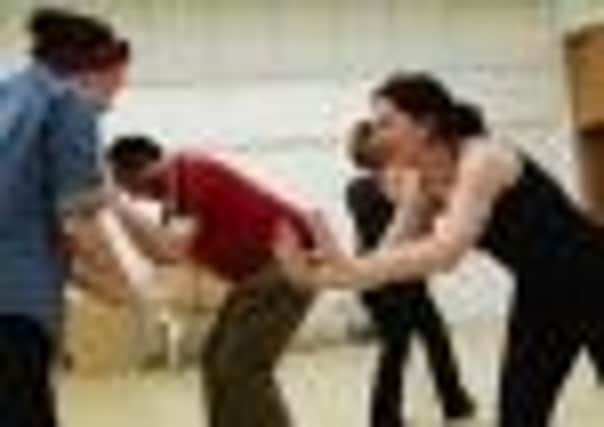All the world’s a stage and all the actors merely amateurs


What they have in common is that they are all being performed by amateur theatre companies as part of a project launched by the Royal Shakespeare Company, which aims to bring the worlds of amateur and professional theatre closer together.
Up until the 1960s, through local repertory companies, there had been a strong relationship between professional and amateur theatre. Many actors, including such luminaries as Sir Ian McKellen and Richard Wilson, learnt their craft on the amateur stage.
Advertisement
Hide AdAdvertisement
Hide Ad“A gap grew up between amateur and professional theatre over a number of years and they had become two very separate worlds,” says Ian Wainwright, a producer with the RSC who is overseeing the RSC Open Stages programme. “We wanted to re-engage with the amateur sector.”
The programme, initiated by the RSC’s artistic director Michael Boyd, aims to develop and celebrate amateur theatre through a series of skills sharing events and showcases run in partnership with nine regional theatres.
“We have been delighted by the response,” says Wainwright. “In the UK there are over a million people doing amateur theatre and many more watching it. We always thought of ourselves as the bigger partner, but actually the world of professional theatre is quite small by comparison.”
The Open Stages team have been impressed with how motivated, self-sufficient and organised the amateur sector is. “This is not an outreach programme,” says Wainwright. “It is as much about us learning from the amateur sector.”
Advertisement
Hide AdAdvertisement
Hide AdThe next step is for the team to see as many of the productions as possible to choose work which will be presented in regional showcases at the participating partner theatres from February to June 2012. “It is not really structured as a competition,” says Wainwright. “It will be more about programming and making sure that we get a good cross-section to give a flavour of the range and variety of productions.”
There are plenty to choose from – 263 in all – made up of 165 straight Shakespeare plays, 36 Shakespeare-related plays and 62 new Shakespeare-inspired plays and musicals written or devised by amateur companies. Five thousand people are taking part – the oldest is 90, the youngest six; productions are being presented in castles, forests, cathedrals, town halls and even a public swimming pool.
The year-long Open Stages programme will culminate with one company from each region being given the opportunity to perform their production at the RSC in Stratford as part of the World Shakespeare Festival in July 2012. And what happens next?
“In a way this is a discovery project to find out what we should have done,” says Wainwright. “So there will be an ongoing commitment, working with our regional partner theatres. There is so much more we could do – and, judging from the response this time, people will be hungry for it.”
For Open Stages 2011-12 performances taking place in Yorkshire, visit www.rsc.org.uk/openstages